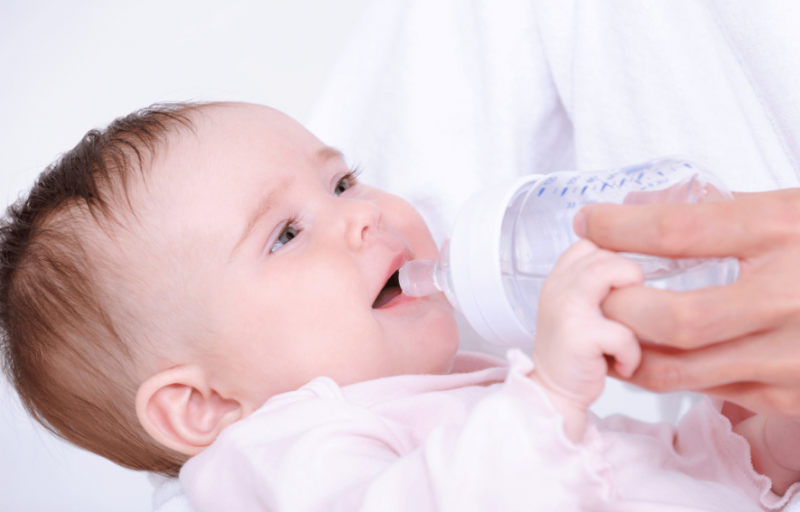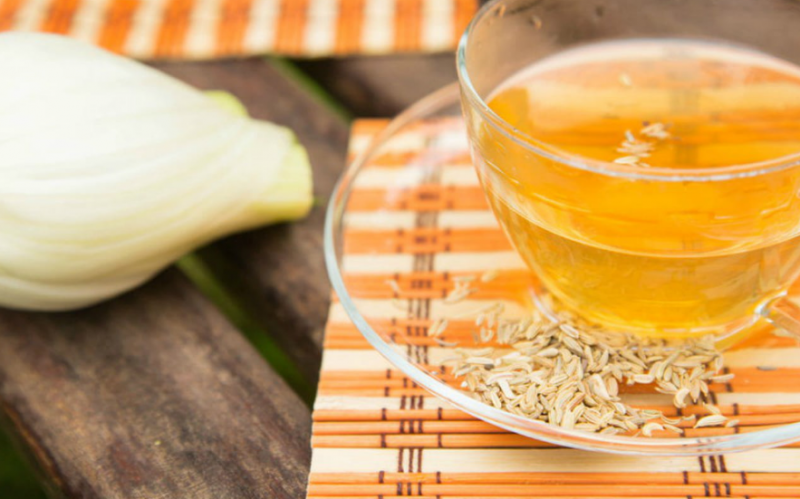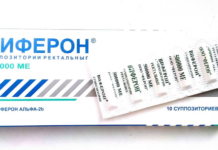The digestive system of the newborn gets used to the new working conditions, and in this difficult period, the baby suffers from colic. In most cases, the attending physician advises dill water for newborns. There is a phytopreparation in any pharmacy, but it is also possible to prepare it yourself.
Material Content:
What is dill water, composition and benefits
A liquid medicine with aniseed aroma has long been called dill water. The drug is prescribed for the child to help him cope with abdominal pains.
The solution is available in various dosage forms:
- liquid solution;
- concentrate;
- Herb tea.
For the production of dill water, fennel oil and purified water are used. The standard form of the drug has a concentration of 0.05 - 0.1%.
Concentrated solutions involve diluting the drug with boiled water. An analogue of dill water is the Plantex preparation, which is also based on the fennel plant.
Sometimes chamomile extract, anise oil and other useful plants are added to dill water. They complement the antispasmodic effect and help the child quickly cope with discomfort.
Dill water helps to remove gases, relieving spasms. With constant use, the drug will relieve the baby from pain, improve the digestive process. The medicine is useful for lactating women. Using it while breastfeeding, you can improve lactation, stabilize the digestive system and cope with constipation.In addition, dill water has a mild sedative effect.
Indication for the use of a carminative
The pediatrician prescribes the discussed drug in the event of a physiological colic in a small patient. Such an unpleasant condition worries the vast majority of infants in the first months of life. Colic is manifested by unpleasant sensations that arise in the process of sucking a breast or a bottle or shortly after that, and end when the child releases gas and empty his intestines.
Of the many drugs that reduce flatulence, dill water is one of the few that are allowed to children from birth.
The instructions for the use of dill water say that the remedy is symptomatic. This means that the drug is unable to cure colic, but can relieve pain and symptoms.
Intestinal colic does not require a more serious treatment. The condition of the baby improves along with its growth and development of the digestive system.
How does the baby affect the body?
The fennel plant, whose oils are part of dill water, has a pronounced carminative effect.
Oil acts on the intestines of the child as follows:
- interferes with the accumulation of gases and catalyzes the process of their removal;
- stops their education;
- has an antiseptic effect;
- positively affects intestinal motility;
- normalizes the digestive system;
- reduces pressure on the internal intestinal walls.
With regular use, dill water improves the functioning of the entire digestive system and contributes to easier digestion of food.
The effect of the use of the drug not only affects the work of the stomach, but also stabilizes the work of the heart muscle, improves the condition of the kidneys and respiratory system, and promotes the rapid healing of scratches and wounds.
Dosage depending on the age of the child
Babies up to three weeks do not always experience intestinal colic, because in the body of a nursing mother there are useful enzymes that facilitate the digestion process.
Based on the age of the child, the following dosage is used:
- If flatulence manifests itself immediately after birth, dill water should be given to the newborn 3 times a day, 15 drops. In the absence of side effects and good tolerance to the drug, the dose is increased to half a teaspoon, and a week later to a whole teaspoon.
- If colic occurs in children aged 3 to 6 weeks, dill water is given starting with half a teaspoon no more than three times a day. Then the dose is increased to the whole.
- When the baby is 1.5 months old, the medicine can be given a whole teaspoon, three times a day. Further, you can increase the frequency of use up to 6 times a day.
Abdominal pain usually disappears when a child reaches three months of age - in someone earlier, in someone later. The intestinal microflora is fully formed by four months.
Home cooking
If the pharmacy does not have the right drug or you want to save money, you can make dill water yourself.
How to prepare dill water at home:
- Pour 1 teaspoon of fennel seeds into a pan.
- Add purified boiled water.
- Put the dishes on the fire and bring to a boil. Soak on the stove for 2 to 3 minutes.
- Remove the broth from the fire, cover. Leave to insist until completely cooled.
- Strain the infusion.
Fennel seeds give the best effect, but a simple dill is easier to get. The main thing to remember is that you can not use the medicine that was prepared yesterday.
To cook dill water from dill seeds, use the following recipe:
- Put 1 teaspoon of dill seeds in a cup.
- Bring clean water to a state of boiling water.
- Pour dill seeds with water.
- Leave the broth infused for one hour.
- Strain the finished mixture thoroughly and cool.
Homemade dill broth is taken in the same way as a pharmacy drug.Carminative can be diluted with breast milk or an adapted mixture.
Compatibility with other substances
It is not recommended to combine dill water with other medicines. It is safe to combine the medicine with chamomile decoction, which helps to cope with the disorder of the stool. In addition, chamomile flowers are known for their anti-inflammatory effect. Before combining dill water with other medicines, you should coordinate the appointment with the pediatrician.
The child does not always agree to drink dill water. To improve the taste, you can add the medicine to breast milk or the mixture.
It is allowed to dilute the product with plain water and give the baby a drink from the bottle.
Side effects and overdose
An overdose can be allowed if you prepare too saturated a decoction.
In such cases, the following side effects may occur:
- weakness;
- diarrhea;
- drowsiness.
An overdose of dill water is not dangerous for a newborn, and all manifestations of side effects disappear within 4 hours.
Some children have an allergic reaction to the active substances of dill water.
Usually it manifests itself:
- itching
- redness of the skin;
- rashes.
At the first sign of an allergy, you should consult your doctor. He will pick up another drug to relieve intestinal colic.
Dill water from colic has a number of contraindications:
- low blood pressure;
- Congenital heart defect;
- intolerance to components.
Intestinal colic is an inevitable period in the life of a child. Doctors say that you just need to survive this time. Cope with the disease will help dill water, which can be prepared at home. The medicine will help the child get rid of abdominal pain and establish digestion.


















